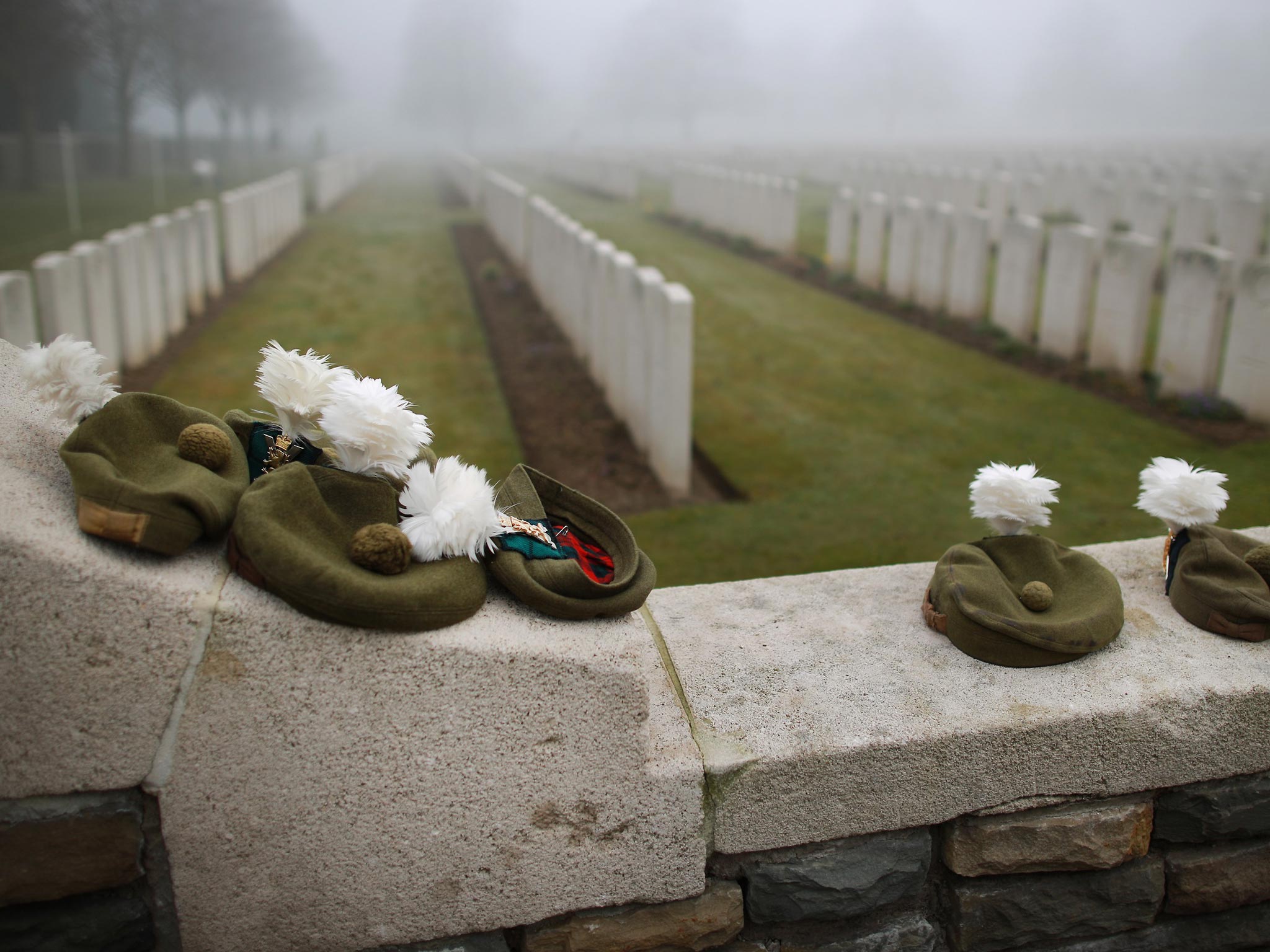The Independent's journalism is supported by our readers. When you purchase through links on our site, we may earn commission.
A century after WW1, there is little danger of history repeating itself
Tensions may be raising around the world, but the stakes have become too high

Your support helps us to tell the story
From reproductive rights to climate change to Big Tech, The Independent is on the ground when the story is developing. Whether it's investigating the financials of Elon Musk's pro-Trump PAC or producing our latest documentary, 'The A Word', which shines a light on the American women fighting for reproductive rights, we know how important it is to parse out the facts from the messaging.
At such a critical moment in US history, we need reporters on the ground. Your donation allows us to keep sending journalists to speak to both sides of the story.
The Independent is trusted by Americans across the entire political spectrum. And unlike many other quality news outlets, we choose not to lock Americans out of our reporting and analysis with paywalls. We believe quality journalism should be available to everyone, paid for by those who can afford it.
Your support makes all the difference.Today marks the centenary of the United Kingdom declaring war against Germany and entering the First World War. One-hundred years on, while another Great War cannot be ruled out, the prospect for the foreseeable future is not as high as a century ago.
Nevertheless, the world today does have parallels with the early Twentieth Century. Once again, there is a significant movement in global power taking place.
Today, power is shifting to developing countries with key Asian states, especially China, primary beneficiaries so far. This contrasts with 1914 when Germany, Russia and the United States were the key ‘rising nations’.
And as 100 years ago, geopolitical tensions are mounting as ‘revisionist nations’, including China and Russia, challenge key elements of the international order. This is partly driven by rising economic power resurrecting nationalism and claims for resources, as witnessed by disputes between China and neighbouring countries in the South China Sea, for instance.
While much focus in 2014 has so far been on Russia’s annexation of Ukraine, the Palestinian-Israeli conflict, and developments in Syria and Iraq, it is perhaps Asia where most tension lies in terms of potential for a great power war. China’s remarkable rise is unsettling the region, and indeed much of the world beyond.
Japanese Prime Minister Shinzo Abe drew parallels earlier this year between the geopolitical landscape in Asia today and Europe on the eve of war in 2014. Moreover, Philippine President Benigno Aquino compared what he claimed was Beijing's track record of belligerent behaviour with German expansionism in the Twentieth Century by openly questioning “at what point do you say, 'Enough is enough?'“
Within Asia, potential triggers for a great power conflict include Taiwan, a US ally, which China claims sovereignty over. Another flashpoint could be an escalation of tension between Japan (which the United States has a security treaty with) and China.
These risks are real and significant. However, there are key differences today with 1914 which, in the absence of catastrophic miscalculation, makes a major power war unlikely for the foreseeable future.
One major difference between now and 1914 is the presence of nuclear weapons which, as during the Cold War, generally serve as a brake on any major power conflict. Of importance here is that both revisionist nations, including China and Russia, as well as ‘status-quo powers’, such as the United States and France, that possess nuclear arsenals.
A further fundamental change is that, unlike 1914, there is now a dense web of post-war international institutions, especially the United Nations, which still have significant resilience and legitimacy. While these bodies need of reform, they have generally enabled international security, especially with five of the key powers all on the UN Security Council.
Moreover, the relative balance between the two leading powers today is different in 2014 than 1914. That is, the gap between United States and China is greater today than that between the United Kingdom and Germany 100 years ago.
The United States remains significantly ahead of China on most measures of national strength, including military might, and is likely to enjoy an overall advantage for years. Indeed, there are indications that US power will remain resilient for decades, buoyed by factors such as the country’s ‘energy revolution’.
Taken overall, the prospect of a major power war for the foreseeable future is not as high as in 1914. The relative global balance of power is different today, partly because of the resilience of US power. Moreover, nuclear weapons and international institutions generally act as a restraining force against major conflict that did not exist 100 years ago.
Join our commenting forum
Join thought-provoking conversations, follow other Independent readers and see their replies
Comments